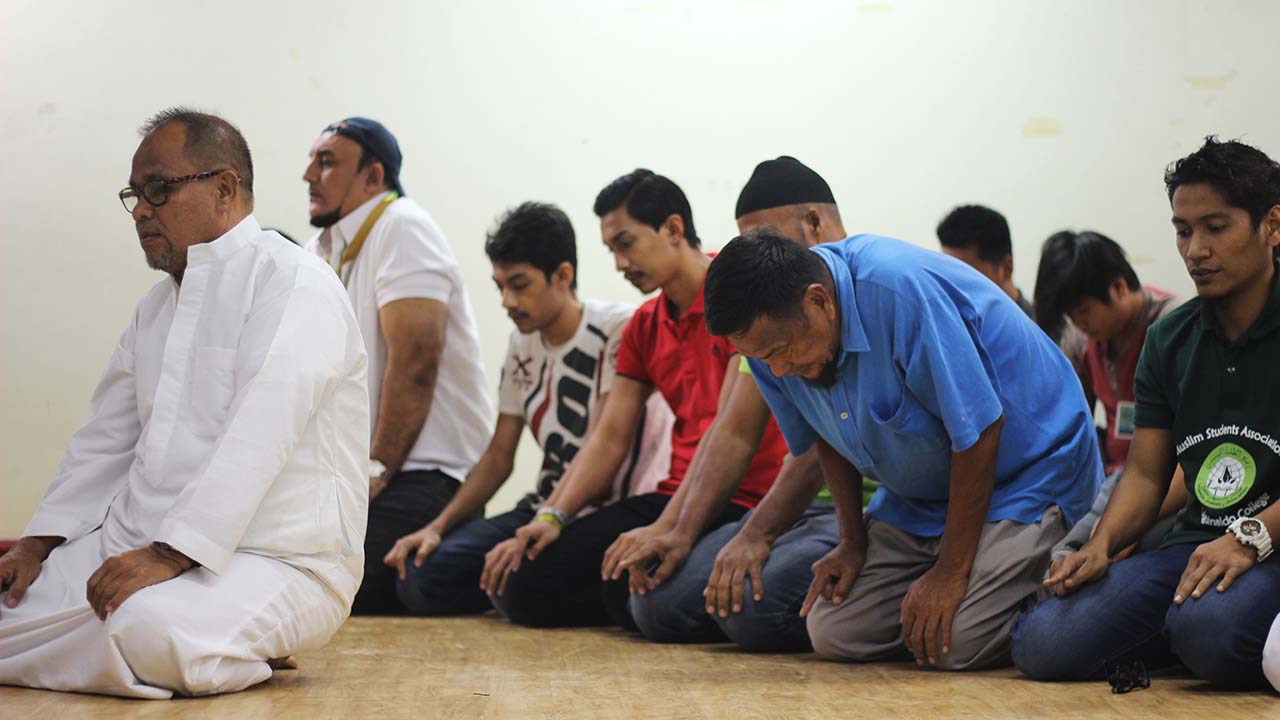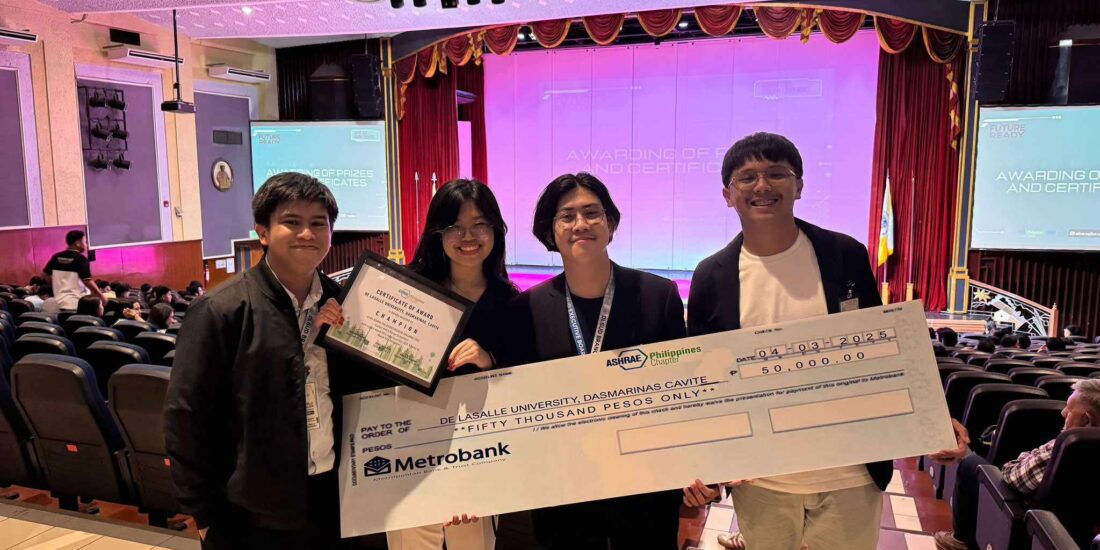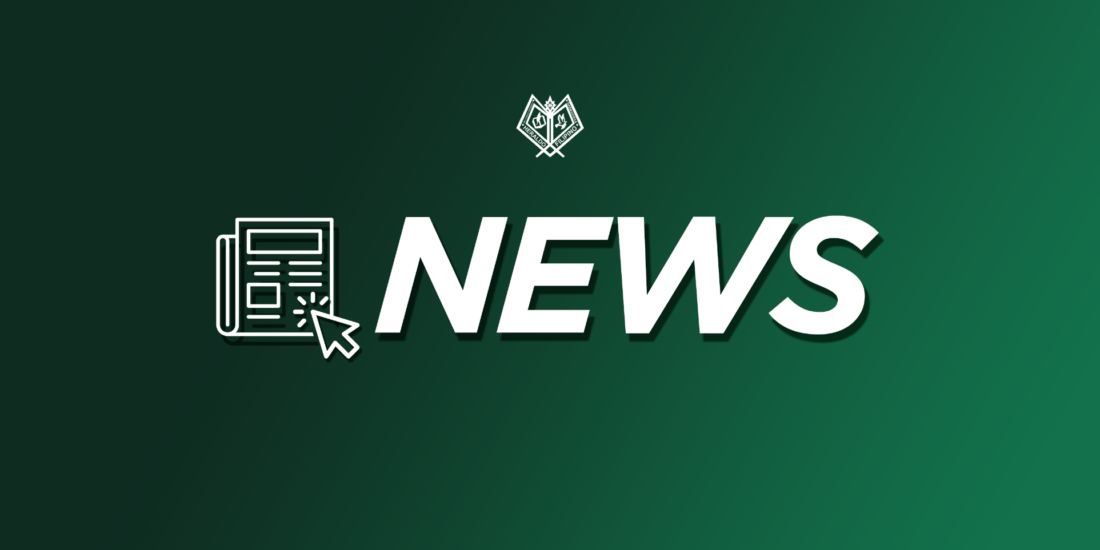Islamic Awareness: Bridging the gap
Diversity isn’t discredited as much as it was decades ago. The ever-growing potential of our understanding, learning, and interaction has paved a great way to embrace the differences amongst us. It varies, grows, and evolves, and the mere context of diversity shatters a plethora of isms and phobias. As we climb to more progressive levels as the ages go by, we ensure that the ladder is steadier than usual.

In the local context, the division of religion inflicts discrimination, hate, and misconceptions, particularly between Muslims and non-Muslims. Since DLSU-D accepts people regardless of their faith despite its Catholic teachings, there is an underlying responsibility to make sure that people get along with one another through the fundamental Lasallian core values.
In this light, Project Head Gorki Muhammad Y, a Nigerian international student in DLSU-D, spearheaded the event “Islamic Awareness: Bridging the gap” on April 14 with other Muslim students, with the aim to establish a connection between Muslims and non-Muslims through education and healthy discourse.
“There are so many differences around the world, and when you look at it between a Muslim and a Christian, there are so many misconceptions occurring. As a young Lasallian Muslim student, I had to raise awareness. One of the main themes that I get here is to bridge the gap—to combine love, peace, and harmony within our community,” Muhammad stated.

Islamic awareness
Various speakers were invited to discuss different topics encompassing Islamic awareness. One of the speakers, Islamic religious leader Sheikh Muammar Adam, discussed a series of misconceptions about Islam with supporting readings from The Qur’an. According to Adam, misconceptions aren’t only coming from non-Muslims for there are also instances where Muslims themselves misunderstand the teachings of Islam.
Adam debunked some false impressions about Muslims and Islam such as the unjust equation of Muslims to terrorism, the belief that The Qur’an was copied from the Bible, the barbaric approach and violent teachings of Islam, and the inequality among Muslim men and women. Even when the discussion went as technical as it could get, there was a common ground that disproves all misconceptions—the fact that Islam is a religion of love and peace.
Other topics such as the basic meaning of Islam and Muslim youth empowerment were also discussed at the event, extensively explained by Islamic studies experts Ustadh Nor Sawata and Dr. Ali Yasin Ali, respectively. Numerous Muslims and non-Muslims participated in the event, along with members of the administration and various student leaders. The organizers didn’t prepare talks and discussions alone as during the break, there were integrations with Muslims and booths that let participants wear thob for men and abaya and hijab for women. Pamphlets and The Qur’an were also given to participants for further understanding of Islamic teachings as the room was filled with conversations among Muslims and non-Muslims, which only proved the potential connection when we learn how to communicate and understand one another.
“Right now, the significance of this event is to raise awareness. So when people are aware what really the religion of Islam is all about, when they hear it somewhere or when they see another Muslim does that, they will definitely say ‘No, these [are] not the teachings of Islam.’ With that, [we] can reduce the rate of Islamaphobia,” Muhammad furthered.

Beyond the event
Our internal religious conflict does not only lie on the internal perspective itself, but also dwells on the political and social atmosphere of society. The HERALDO FILIPINO asked Muhammad regarding the relevance of the event in today’s context, especially given the current state of Islamic culture, terrorism, fake news regarding Islam, and the political atmosphere of the country. As a Muslim, his opinions represented the teachings of his religion.
“If we can relate it to politics, some of our political [leaders], when they hear [or] they know about Islam, they can do such [ways] that can reduce [misconceptions] especially now you see the Martial Law [in Mindanao]. Actually, I’m not a Filipino. I don’t know much about the Martial Law but if you’re going to connect it, in Islam there should be [peace]. The leader has to be just. So if the Martial Law will bring about justice—good justice between people—then it’s good. But if it’s not bringing justice among people, then it’s really bad.”
The youth, being more relevant and exposed than ever to national issues, also has great contributions to this issue. Muhammad asked the youth to get to know the true religion of Islam and not frown upon Muslims’ actions because those do not represent the entirety of their religion.
“When you look at Islam, learn to respect the differences we have, the culture, and that’s how we live in peace and harmony. Also, we should try our best [to] develop our community—the community in which where we should develop in more ways.”
***
The event concluded with the birth of a new, or rather rectified, perspective of Islam. Through engagements, immersions, and discussions, the awareness the Muslim students of DLSU-D were aiming for was undeniably achieved.
Indeed, the cultural variation is expanding as we conserve our culture and aim for development and diversity simultaneously. Like any other group, race, or religion, Muslims also have their own strength, character, and vigor—and these should not be misinterpreted or associated with violence. It is simply the fact that like any other culture and religion, what’s vital is the representation and respect towards people, lifestyle, and beliefs.




